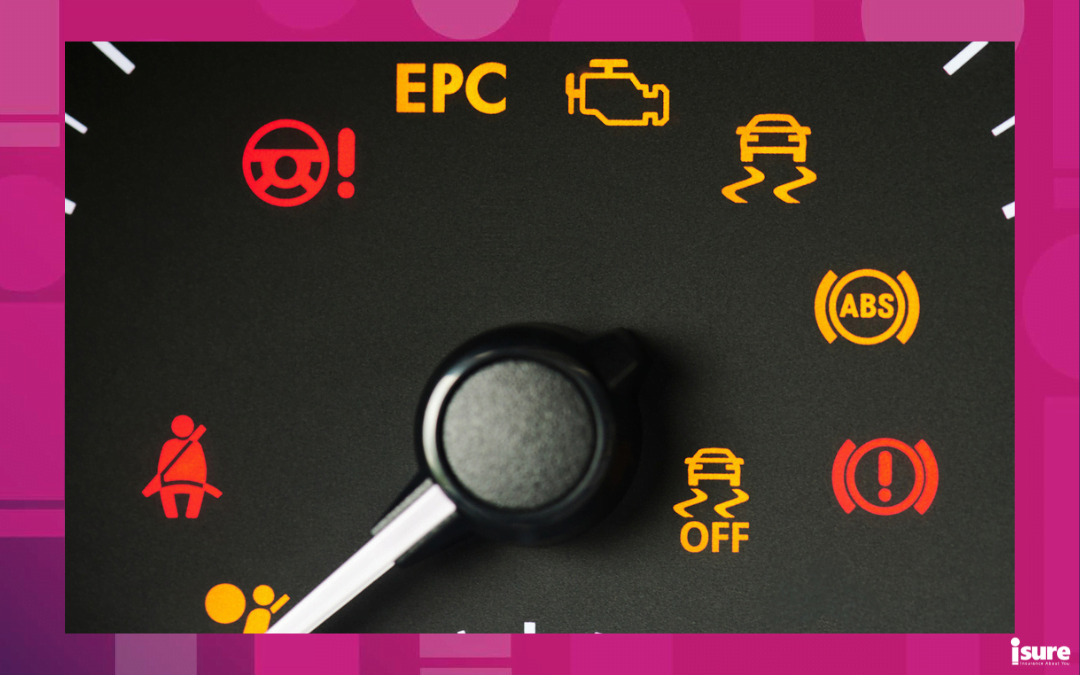The world of insurance can be tricky, especially when you’re new to the terms! It is full of wording that may not be common outside of auto, home and business policies. Because of this, it can sometimes be confusing to decipher when reviewing your policy. Knowing these common insurance terms is crucial when it comes to understanding and getting the most out of your insurance plans. Luckily, isure is here to help with our list of the most common insurance terms below. We hope that with this glossary, you can discuss and research insurance without confusion. So, whether you’re looking for a new plan, submitting a claim or trying to understand your policy better, you’ll know exactly what terms are being used with confidence.
1. Actual Cash Value
This is the current market value of your car or item. This is general term for determining the cost of an item in order to insure it or cover it if it suffers damage, stolen or lost.
2. Advisor
This common insurance term is also known as an adjustor. These are the insurance professionals who gather facts about the items you wish to insure. They do everything from coordinating appraisals to determining the value of your items or settlements based on damage or loss.
3. At-Fault
After a car accident, you can be found anywhere between 0% to 100% at-fault, depending on the accident details. If you are even 1% at-fault, you will have an at-fault accident put on your insurance record. This will differ in each situation, and certain areas will have certain circumstances in which the amount you are at-fault is determined. As a result, your insurance premium will typically increase.
4. Claim
This is what you submit after you experience damage or loss to a car or item you pay to insure. You will also submit a claim when something of yours is stolen from your home during a burglary, such as expensive jewellery. Insurance companies will receive a claim and approve or validate you for that loss. You will also submit a claim when someone causes damage or harm to you or your property.
5. Accident Benefits
Accident Benefits are the expenses that have coverage in an accident, regardless of who is at-fault. This will generally cover things, such as medical care or income replacement, if someone is unable to work due to a claim.
6. All Perils Coverage
All Perils is an optional coverage that covers all causes of loss if written directly in your policy. This can include loss or damage in the even your car is stolen or something in your home is broken by someone who does not live there.
7. Bodily Injury Coverage
This one isn’t necessarily how it may sound. This is protection against liability for damage to the property of someone else. This includes loss and the use of the property altogether.
8. Collision Coverage
Collision coverage is specific to collisions or if your car comes in contact with another object. With this coverage, your insurance provider will cover the cost of repairs to fix your car, minus the amount you pay as your deductible.
9. Comprehensive Coverage
Comprehensive auto coverage is for more specific situations, and is an insurance term you will hear often. This is a type of coverage package that takes on specific perils, such has hail, flood, theft or fire and will compensate you based on what is written in your insurance premium.
10. Direct Compensation Coverage
Direct Compensation coverage is the most general and straightforward. It provides you with compensation for your car and its contents if another person is deemed at-fault during an accident. You will collect this directly from your own insurer!
11. Family Protection Coverage
This type of coverage will allow you to add family members to your liability coverage limit. This can prove to be helpful if you are in an accident with someone who only has the minimum amount of liability coverage. For more on the OPCF 44R endorsement, click the link to our article here.
12. Liability Coverage
Liability auto insurance is a mandatory coverage that protects you from being held responsible for accidents that happen between you, a third party and their property. Your level of liability coverage depends on the policy that you purchase. Additional liability coverage will differ, depending on different scenarios and other coverage you purchase. It is against the law to drive a car without liability insurance. However, it is not a requirement to have liability insurance in order to own a house. However, with that being said, most banks and mortgage lenders will refuse to approve a mortgage without proof of insurance.
13. Perils Coverage
‘Perils’ are specific situations or risks that you purchase protection from within your insurance policy. Some examples of these can include damages, theft, fire, or flooding.
14. Deductible
This is the amount you are responsible to pay up from when it comes to a claim. This will be something you will always need to pay upfront in the event of a claim, no matter who is at-fault. This is a previously agreed-upon amount that you pay for before your insurance plan comes into effect. If you are not at-fault, you may receive a refund for your deductible.
15. Depreciation
This is when the value of an insured item decreases over time. For example, a car’s depreciation will begin after you leave the dealership lot. It will depreciate further as the car ages and develops use.
16. Excluded Driver
These are specific people who are using your car, but are not covered by your insurance plan. For example, this can be a friend that regularly uses your car or a family member who borrows it to run an errand. This extra endorsement can be helpful with avoiding higher premiums if the excluded driver is deemed at-fault during an accident.
17. Exclusion
An exclusion is the opposite of a peril. These are typically things that are do not have coverage with a general insurance policy. This can also include normal wear-and-tear from use, vermin or rodents.
18. In Force
This is a term that describes an active, ongoing insurance policy. If your policy isn’t cancelled or expired, it is ‘in force’.
19. Lessee
A person that is leasing a car from a dealership or company or renting a home from a landlord.
20. Lessor
A company or dealership that provides you with a lease agreement for your car or home.
21. Limitation Period
This is the period of time in which you can decide on taking legal action against your insurance company. The amount of time in a limitation period will vary between each province and territory. In Ontario, the limitation period is two years.
22. No Fault
This is the procedure in which insurance claims are handled by each individual parties’ own insurance companies. This is the case, regardless of who is at-fault in the car accident or other situation. Instead of dealing with the other driver, you will deal with your insurance company directly. From there, each person will handle things such as injuries, damages and claims. One thing to keep in mind is that regardless of the name, you can still be found fully or partially at-fault for the accident specified.
23. Premium
This is what you pay when you are purchasing insurance. Depending on the premium and insurance company you use, you may have to pay your premium monthly or on an annual basis.
24. Registered Owner
This is the person who is identified in your registration information as the owner of a house or vehicle. To be more specific, this is who has rights to the specified item. Keep in mind that if you have leased your car or house to a lessee, than you do not have possession rights until your lease is fully paid off.
25. Insurance Policy Limit
This is the most amount of money your insurance company will pay out to you in the event of damage or a loss. An insurance policy limit can also be known as an extended policy limit. This can be defined in many ways! However, it is generally based off of what is insured and the type of insurance policy you are currently holding! In many cases, upon setting up an insurance policy, you have the option to raise or lower your limits based on your needed coverage.
26. Write-Off
Also known as a total-loss, this is what happens when the repair cost of a car or item is higher than the car or item itself, prior to any damage or loss. In situations where this occurs, your insurance company will generally offer you a settlement based on your insurance policy coverage.
We hope that with the help of this common insurance terms glossary, you won’t need to Google words whenever you are reading or talking about insurance! If you are shopping for new insurance, give isure a call! Whether it’s a car, home or boat, we have you covered with high-quality customer service and the best rates.




